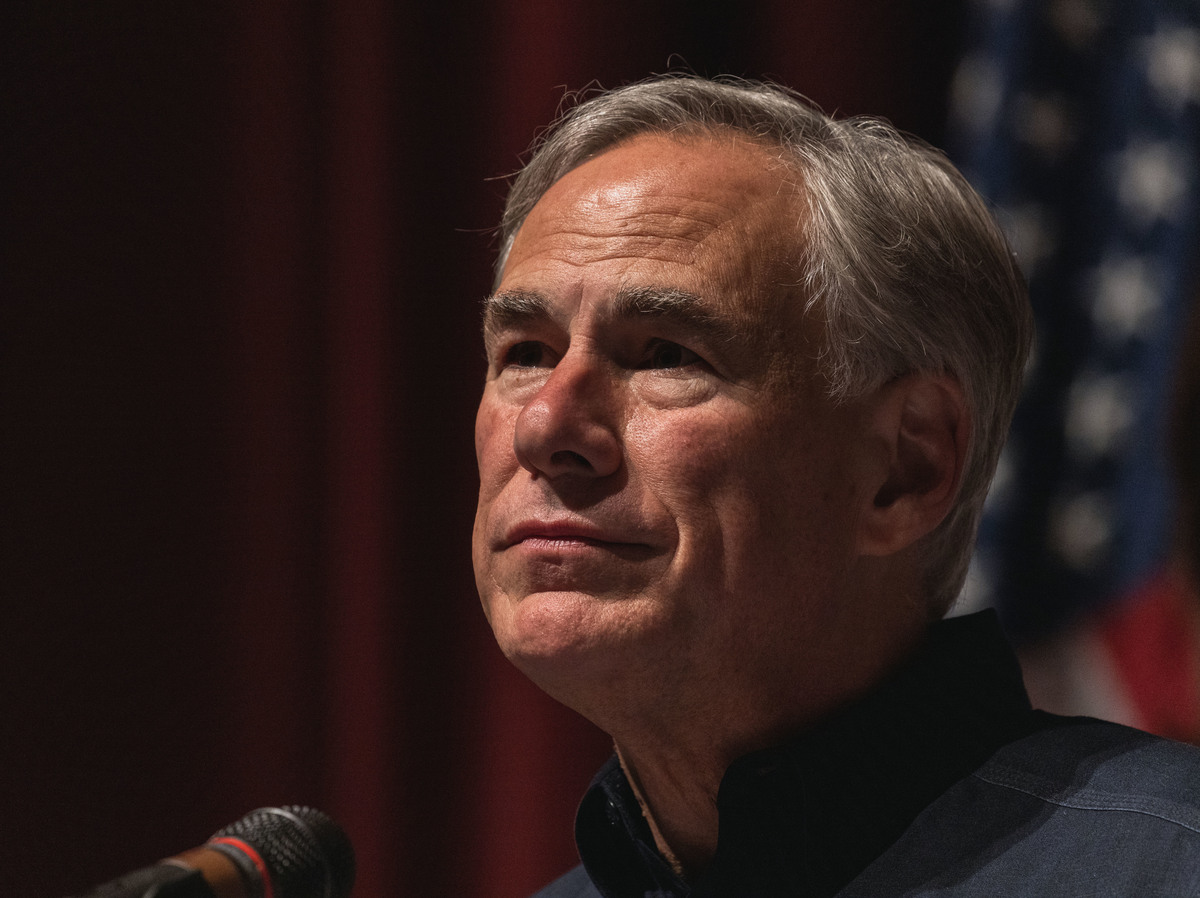
Texas Gov. Greg Abbott speaks during a press conference on May 25 in Uvalde, Texas.
Jordan Vonderhaar/Getty Images
hide caption
toggle caption
Jordan Vonderhaar/Getty Images

Texas Gov. Greg Abbott speaks during a press conference on May 25 in Uvalde, Texas.
Jordan Vonderhaar/Getty Images
The U.S. Supreme Court on Tuesday blocked a Texas social media law from taking effect that intended to punish online platforms for removing political speech.
The vote was 5-to-4, with the court’s three most conservative justices filing a written dissent that would have allowed the Texas law to start. In a surprise move, liberal Justice Elena Kagan joined in the dissent, but she did not explain her rationale.
The Texas law bars Instagram, Facebook, Twitter and other popular social media sites from blocking content based on viewpoint. Gov. Greg Abbott maintained that the law was a justifiable response to “a dangerous movement by social media companies to silence conservative viewpoints and ideas.”
A federal district court temporarily halted state officials from enforcing the law, saying it likely violates the First Amendment. But a divided panel of the 5th U.S. Circuit Court of Appeals allowed enforcement to proceed.
The Big Tech interest groups NetChoice and the Computer & Communications Industry Association, filed an emergency request to block the law after the U.S. Court of Appeals for the 5th Circuit overturned a lower court ruling that enjoined it from taking effect.
The groups argued the law would force tech platforms to leave up everything from Russian propaganda to neo-Nazi and Ku Klux Klan screeds. The groups maintained that the Constitution protects their right to manage platform content, just as it protects a newspaper’s publication decisions.
The Chamber of Progress, a lobbying group for Big Tech, applauded the high court’s pause of the Texas law.
“As we debate how to stop more senseless acts of violence, Texas’s law would force social media to host racist, hateful, and extremist posts,” said the group’s CEO Adam Kovacevich.
Scott Wilkens, a senior staff attorney with the Knight First Amendment Institute at Columbia University, also welcomed the court’s move, saying “the theory of the First Amendment that Texas is advancing in this case would give government broad power to censor and distort public discourse.”
The Texas law prevents social media platforms with at least 50 million monthly active users like Facebook, Instagram, YouTube, TikTok and Twitter from taking down posts based on a user’s viewpoint. It enables users to sue the platforms if they think they have been censored because of their political views. It also allows the state’s attorney general to enforce violations, a power that worried experts who study online platforms and speech.
Florida has passed a similar law attempting to rein in social media companies. But that one has been halted as a legal battle plays out over its implications for the First Amendment and other legal issues.
Under U.S. law, online platforms are not legally responsible for what people post and a tech company’s policies over what is and isn’t allowed on sites has long been considered a type of speech protected by the First Amendment.
But a growing movement to reinterpret these laws has been embraced by both Texas Attorney General Ken Paxton and U.S. Supreme Court Justice Clarence Thomas, who both believe social media companies should be regulated like “common carriers,” like a telephone company or another public utility and should be subject to far-reaching federal regulation.
The Texas case will almost certainly come back to the Supreme Court since the Fifth Circuit panel seems inclined to uphold the law. Assuming that happens, such a ruling would directly contradict a ruling by the Eleventh Circuit Court of Appeals, leaving the Supreme Court to resolve the conflict.




